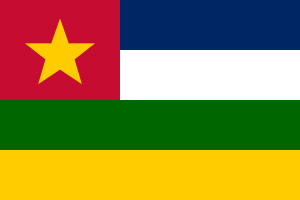Difference between revisions of "Language/Pulaar/Grammar/Give-your-Opinion"
m (Quick edit) |
m (Quick edit) |
||
| (One intermediate revision by the same user not shown) | |||
| Line 9: | Line 9: | ||
__TOC__ | __TOC__ | ||
<span link>Consider broadening your understanding by checking out these related lessons: [[Language/Pulaar/Grammar/Adjectives|Adjectives]] & [[Language/Pulaar/Grammar/Conditional-Mood|Conditional Mood]].</span> | |||
== Expressing Opinions == | == Expressing Opinions == | ||
| Line 93: | Line 95: | ||
}} | }} | ||
==Other Lessons== | |||
== | |||
* [[Language/Pulaar/Grammar/Pronouns|Pronouns]] | * [[Language/Pulaar/Grammar/Pronouns|Pronouns]] | ||
* [[Language/Pulaar/Grammar/Future-Tense|Future Tense]] | * [[Language/Pulaar/Grammar/Future-Tense|Future Tense]] | ||
| Line 104: | Line 105: | ||
* [[Language/Pulaar/Grammar/Plurals|Plurals]] | * [[Language/Pulaar/Grammar/Plurals|Plurals]] | ||
* [[Language/Pulaar/Grammar/Conditional-Mood|Conditional Mood]] | * [[Language/Pulaar/Grammar/Conditional-Mood|Conditional Mood]] | ||
<span class='maj'></span> | |||
==Sources== | |||
* [https://polyglotclub.com/wiki/Language/Pulaar/Grammar/Give-your-Opinion Pulaar Grammar - Give Your Opinion] | |||
* [https://nalrc.mybigcommerce.com/pulaar-learners-reference-grammar/ Pulaar Learners' Reference Grammar] | |||
{{Pulaar-Page-Bottom}} | {{Pulaar-Page-Bottom}} | ||
<span links></span> | |||
Latest revision as of 22:08, 27 March 2023
Hi Pulaar learners! 😊
In this lesson, we will focus on expressing opinions in Pulaar. Giving your opinion is an essential communication skill in any language. By the end of this lesson, you will be able to confidently express your thoughts and opinions in Pulaar.
Consider broadening your understanding by checking out these related lessons: Adjectives & Conditional Mood.
Expressing Opinions[edit | edit source]
In Pulaar, we have several expressions to convey our opinions. Here are a few examples:
| Pulaar | Pronunciation | English |
|---|---|---|
| Mi ñowu la. | [mi ɲo.wu la] | I think so. |
| Ñeyaani. | [ɲe.ja:.ni] | I agree. |
| Mi wiy laawol. | [mi wiɰ la:.woɺ] | I disagree. |
| Haali tey. | [ha:.li te:j] | It depends. |
Let's see these expressions in context:
- Person 1: Kisa ñamme waande lowa? (What do you think about this book?)
- Person 2: Mi ñowu la. (I think it's good.)
- Person 1: Maa ngam … ? (Do you agree with me … ?)
- Person 2: Ñeyaani. (I agree.)
- Person 1: Ñii wonaa lee puɗɗo? (Don't you like this movie?)
- Person 2: Mi wiy laawol. (I disagree.)
- Person 1: Indi may he feewi ? (Will it rain today?)
- Person 2: Haali tey. (It depends.)
Using "Faayda" to Support Your Opinion[edit | edit source]
In Pulaar, we use the word "faayda" to support our opinions. "Faayda" means "because" in English. For example:
- Person 1: Mi nga war naarni faayda JogorD'aas. (I like mathematics because it's interesting.)
- Person 2: Aah, mayruutaama. (Ah, that's true.)
Let's look at another example:
- Person 1: Indi maa rokku ko jogi? (Why did it rain yesterday?)
- Person 2: Mi ndokki naarni faayda, sabu ko sañoro waɗi. (I think it rained because the sky was dark.)
As you can see, we use "faayda" to give the reason or the cause behind our opinions.
Asking for Opinions[edit | edit source]
To ask for someone's opinion, you can use the following expression:
- wallaa na? (What do you think?)
For example:
- Person 1: Kisa ñamme he waande lowa? (What do you think about this book?)
- Person 2: Wallaa na? (What do you think?)
Giving Polite Opinions[edit | edit source]
When expressing opinions in Pulaar, we always try to remain polite and respectful. We use the phrases "mi ngoolo" or "mi njogii" to show politeness. For example:
- Mi ngoolo waala silk? (Do you think it's okay if I wear silk?)
- Mi njogii ko yonta wonaa seftor. (I believe that science is important.)
Using "mi ngoolo" and "mi njogii" shows that you are open to other opinions while still presenting your own point of view.
Practice Makes Perfect[edit | edit source]
To improve your Pulaar Grammar, you can also use the Polyglot Club website. Find native speakers and ask them any questions!
Let's practice what we've learned in this lesson:
- Person 1: Kisa ñamme he mo paaro nopo yaltini? (What do you think of this new restaurant?)
- Person 2: Mi ngoolo, haa njaalo he nehne ko siyaa ñamme. (I think it's good, but it's a bit expensive.)
- Person 1: Wallaa na ko ɓenni he leydi ndoddam? (What do you think of the new president?)
- Person 2: Mi nga wiy leydi ko kawi, sabu ko yeeso haala gooto waɗi. (I disagree with the president's decisions because it's causing chaos in the country.)
Remember to use "faayda" to support your opinions while being respectful of others' thoughts.
➡ If you have any questions, please ask them in the comments section below.
➡ Feel free to edit this wiki page if you think it can be improved. 😎
Other Lessons[edit | edit source]
- Pronouns
- Future Tense
- How to Use Have
- How to Use Be
- Gender
- Negation
- Questions
- Plurals
- Conditional Mood
